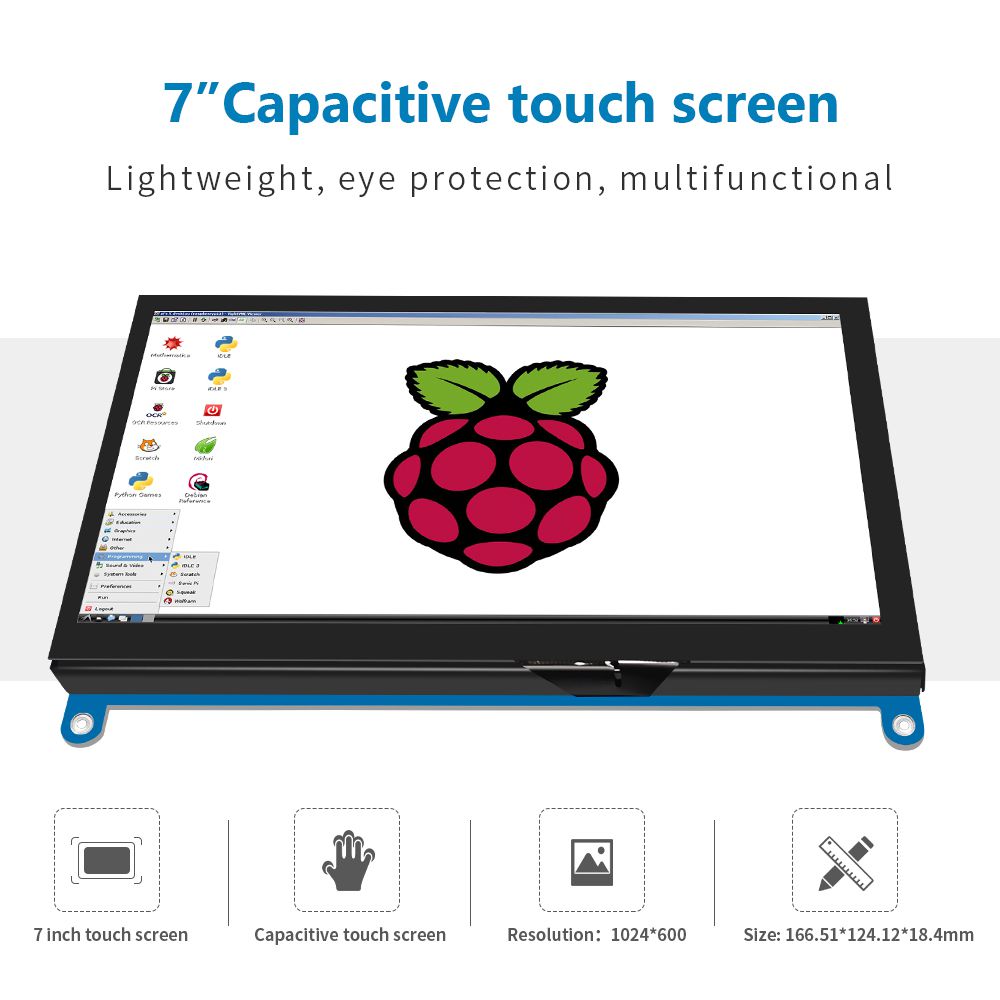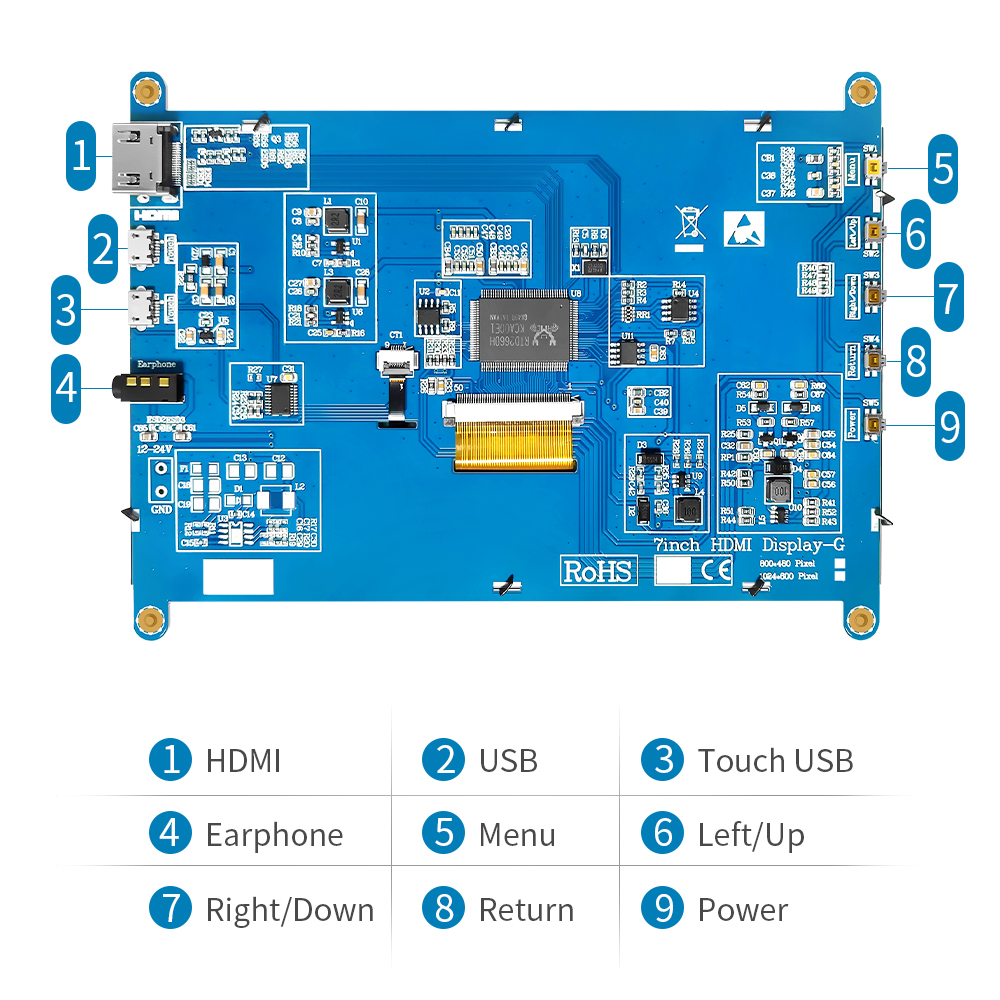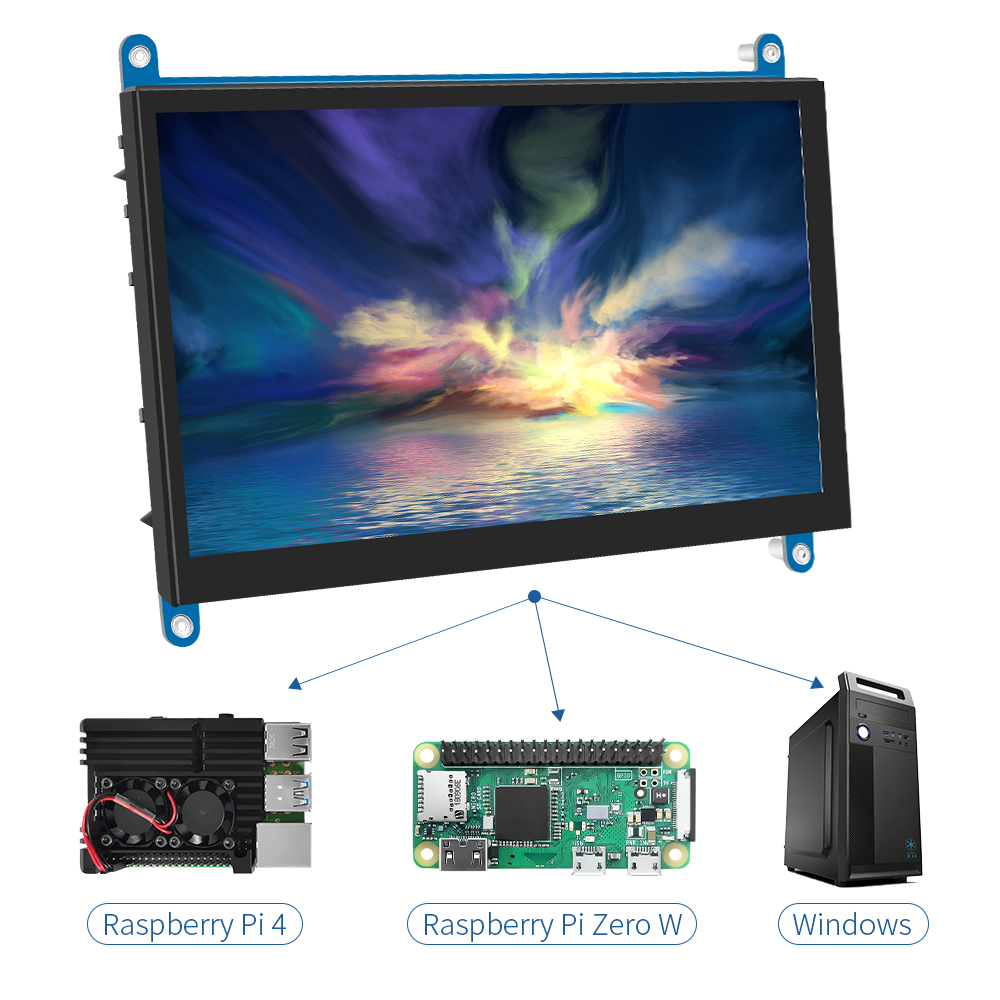It appears that your cart is currently empty
Description:
- 7inch standard display, 1024 × 600 Hardware resolution, Up to 1920x1080 Software configuration resolution.
- Capacitive touch screen, maximum support 5 point touch.
- Support backlight control alone, the backlight can be turned off to save power.
- Support Raspberry Pi, BB Black, Banana Pi and other mainstream mini PC.
- Can be used as general-purpose-use HDMI monitor, for example: connect with a computer HDMI as the sub-display .
- Used as a raspberry pi display that supports Raspbian, Ubuntu, Kali-Linux, K0di, win10 IOT, single-touch, free drive.
- Work as a PC monitor, support win7, win8, win10 system 5 point touch (xP an1d older version system: single-point touch),
- Free drive.
Specification:
Size: 7.0 (inch)
Resolution: 1024 × 600 (dots)
Touch: five-point capacitive touch
Dimensions: 166.5*124.12 (mm)
Weight: 380 (g)
How to use with Raspbian/Ubuntu Mate/Win10 IoT Core System
Step 1, Install Raspbian official image
Download the latest image from the official download.
Install the system according to the official tutorial steps.
Step 2, modify the “config.txt”
After the programming of Step1 is completed, open the config.txt file of TF card root directory and
add the following code at the end of the file, save and eject Micro SD Card safely:max_usb_current=1
hdmi_force_hotplug=1
config_hdmi_boost=7
hdmi_group=2
hdmi_mode=87
hdmi_drive=1
display_rotate=0
hdmi_cvt 1024 600 60 6 0 0 0
Step 3, Drive the 7inch HDMI JRP7007 with the Raspberry Pi
Insert the TF Card to Raspberry Pi, connect the Raspberry Pi and LCD by HDMI cable;
connect USB cable to one of the four USB ports of Raspberry Pi,and connect the other end of the USB cable to the USB port of the LCD;
then supply power to Raspberry Pi; after that if the display and touch both are OK,it means drive successfully (please use the full 2A for power supply).
How to use as PC monitor:
Connect the computer HDMI output signal to the LCD HDMI interface by using the HDMI cable
Connect the LCD's USB Touch interface (Either of the two MicroUSB) to the USB port of the device
If there are several monitors, please unplug other monitor connectors first, and use LCD as the only monitor for testing.
About TN and IPS:
TN, or twisted nematic, was the first LCD technology on the market. TN panels consist of liquid crystals sandwiched between two polarizing filters. When an electric current is applied, the crystals twist and allow light to pass through. TN panels are by fa1r the cheapest, but they're also a bit out of date and not as common.
IPS, which stands for in-plane-switching, uses a different crystal orientation compared to VA and TN. While TN and VA twist the crystals, IPS crystals are parallel with the glass substrate, and they rotate within the plane of the substrate to let light through, similar to the shutter on a camera. IPS panels are by fa1r the most common on today's monitors.













